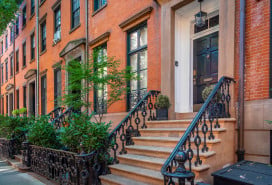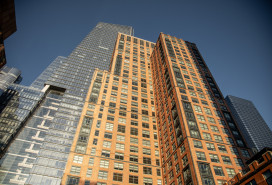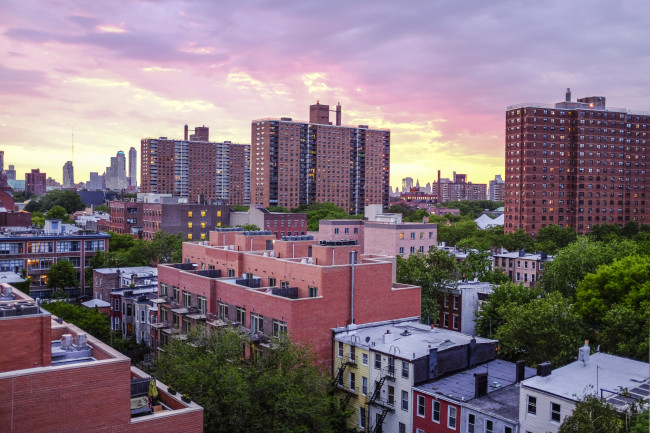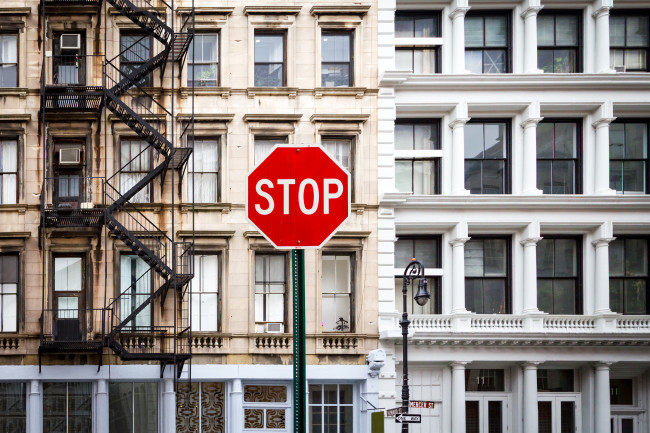Are you an international student in NYC? Here's how to rent an apartment
- You'll need your passport, active student visa, enrollment letter or transcript, and proof of income—or more likely a guarantor
- Landlords typically require personal guarantors who live in the tri-state, but you can still qualify for an institutional guarantor
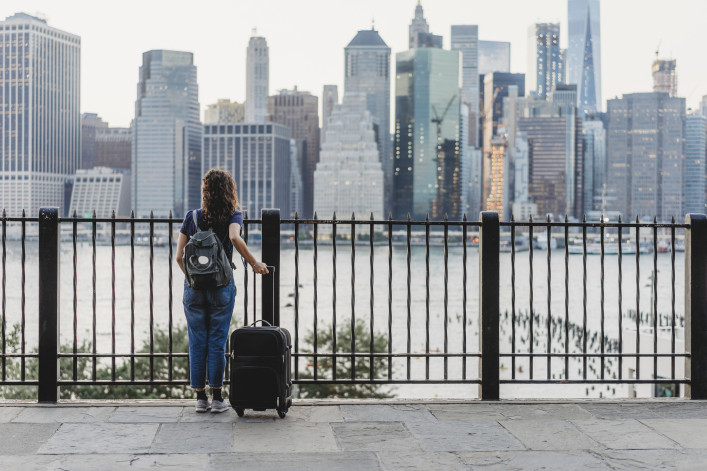
Finding a place in NYC as an international student is complicated, but there are ways to ease your efforts.
iStock
I’m a student from France and I just found out I got a spot at the New York Film Academy, so I will be heading to the city for classes. What kind of documents do I need to rent an apartment?
The first thing you need to know is that finding an apartment in New York City as an international student is complicated, especially since you’re unlikely to have U.S. credit or a steady paycheck, two must-haves for renters.
To qualify for a rental here, landlords want proof that you have consistent funds coming in rather than a bank account with a temporary, usually parent-supplied infusion of cash. You’ll also need to show why you're in the city—in this case, for school.
It's also a challenging time to sign a lease in NYC: Rents are still near all-time highs and available apartments are more scarce. But that crunch is expected to ease as summer turns to fall.
[Editor's Note: Realty Bites tackles your NYC rental questions. Have a query for our experts? Drop us an email. We respect all requests for anonymity. An earlier version of this post was published in August 2022 and has been updated with new information for August 2023.]
The documents you need to rent a place as a student will include a photo ID or passport, bank statements (U.S. bank accounts are almost always required), a letter of enrollment or transcript from the school, and the correct visa that is active for at least the entirety of the lease.
Here's what else you need to know.
Use a personal or institutional guarantor
Most landlords, at minimum, require that you earn a steady income of at least 40 to 50 times the monthly rent—and have a credit score of around 700 or higher. Since you're a student (and presumably not earning a full-time income) and don't have a credit history in the U.S., you'll almost certainly need a personal guarantor, someone who will agree to be responsible for your rent if you default. Unfortunately, many landlords require that the guarantor earn a salary of 75 to 85 times the monthly rent and reside in the tri-state area (New York, New Jersey, and Connecticut). So as an international student, a parent or other relative who is out of the country will not qualify as a personal guarantor.
One way around this requirement is to turn to Insurent Lease Guaranty (a Brick Underground sponsor), which will act as your guarantor and is accepted in over 9,000 buildings representing over 800,000 rental units. Charles Schoenau, managing director at Insurent, says, “The vast majority of international students qualify for an Insurent guaranty by having their parents be responsible parties to Insurent, who will be the guarantor on the lease."
You'll need to provide a copy of your passport and visa, as well as copies of your parents' passports.
Additionally, your parent(s) will need to provide evidence that their annual income is 50 times your monthly rent, or that they have 80 times the monthly rent in bank or brokerage accounts.
"If the student has this information for their parents, they can be fully qualified in less than one hour," Schoenau says.
Need help finding a landlord who rents to international students? Put your search into the capable hands of The Agency, a tech-savvy real estate brokerage that's helped hundreds of Brick Underground readers find their ideal NYC apartments. The Agency will charge a broker's fee of 10 percent of a year's rent on open listings instead of the usual 12 to 15 percent if you sign up here. Bonus: The agents at The Agency are a delight to deal with.
Insurent's prices for international students are about equal to a month's rent, and if the student is required to use a guarantor when renewing a lease, the renewal rate would be approximately 88 percent of a month's rent.
“Some students who have liquid assets in their own name (over 50 times the monthly rent) may also be able to qualify on their own, but such students are the exceptions, not the norm,” he says.
You can't use a bigger security deposit
In the past, another option for international renters was to see if the landlord was willing to accept a bigger security deposit upfront—generally four to six times a month's rent, instead of the usual one month's rent. This is no longer allowed, thanks to stronger tenant protections implemented as part of the 2019 rent law changes.
For international students, this makes qualifying trickier. Those that do not meet the required standard qualifications end up paying more. That’s because instead of paying more rent upfront, now students must pay fees for using lease guarantying services—these are out of pocket costs that won’t be applied to the lease.
Some New York City landlords offer a free month (or more) at the beginning or end of a lease. The advertised rent is the net effective rent. The net effective rent is less than the amount you will actually have to pay --- known as your gross rent --- during your non-free months. Brick Underground's Gross Rent Calculator enables you to easily calculate your gross rent, make quick apples-to-apples comparisons between apartments and avoid expensive surprises. All you'll need to figure out your gross rent is 1) the net effective rent, 2) the length of your lease, and 3) how many free months your landlord is offering. [Hint: Bookmark this page for easy reference!] To learn more about net effective versus gross rents, read What does 'net effective rent' mean?. If the landlord is offering partial months free, enter it with a decimal point. For example, 6 weeks free rent should be entered as 1.5 months.Brick Underground's
Gross Rent Calculator
What's this?
There are other strategies for finding a place to live, such as a co-living arrangement or finding someone who needs a roommate, which does not require you to be on a lease at all. (Of course, that means you don’t have the protection of being on a lease.)
And if all this sounds like an impossible headache, don't forget that almost every NYC college or university has resources to help students find housing, and the New York Film Academy is no exception. It offers rooms in dorm-style residences for approximately $1,800 a month per person and has a housing coordinator who can help you find an apartment. The average cost for a furnished studio apartment starts at $2,200 a month, according to the school’s website; if you’re interested in this option, plan to arrive a week or two in advance to check places out.
If you're tackling an apartment hunt for the first time in NYC, it's worth accepting all the help you can get.
You Might Also Like



